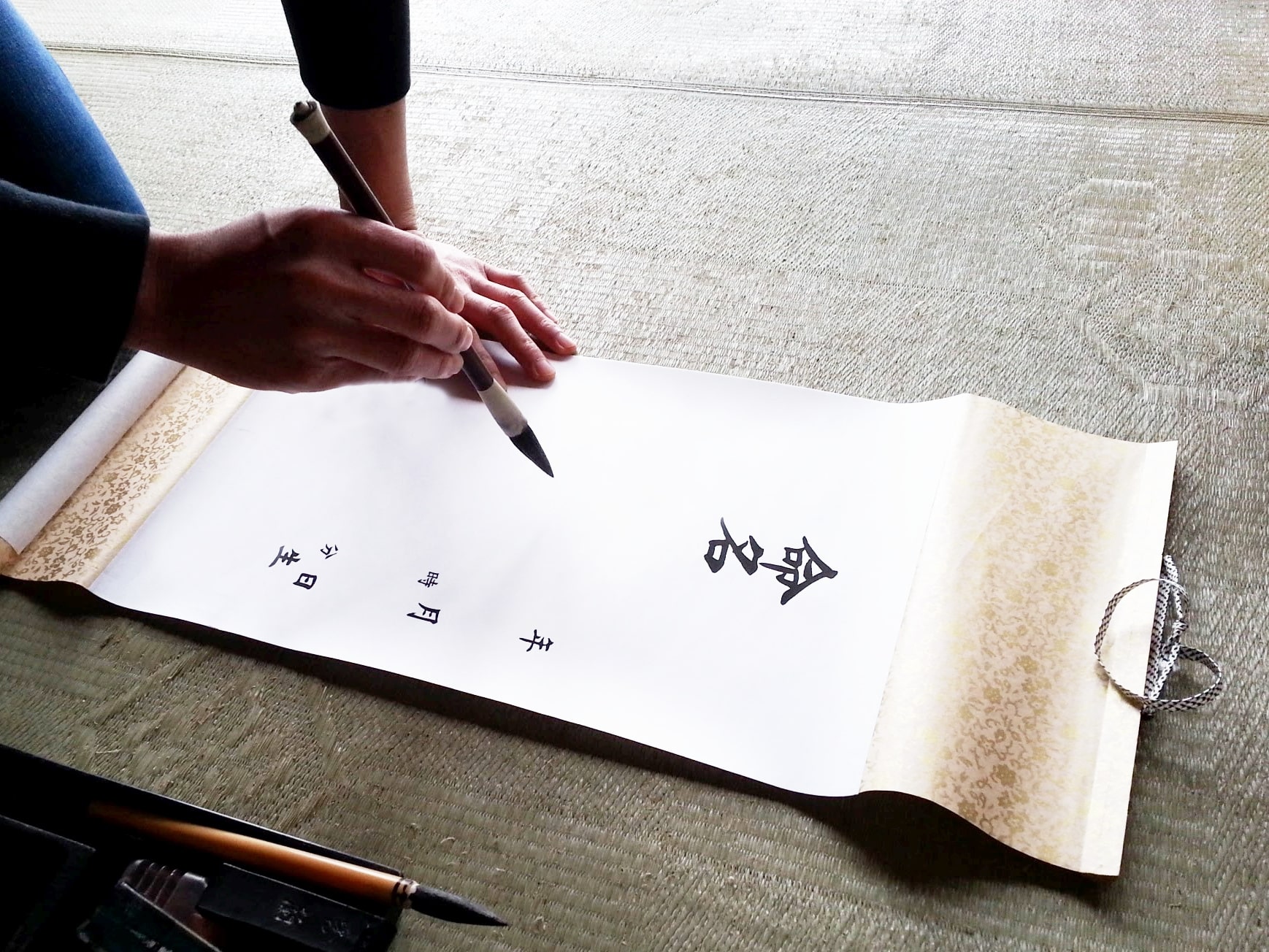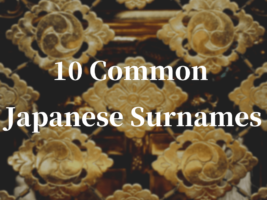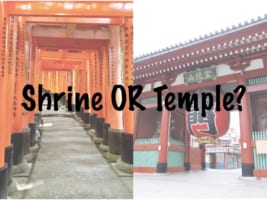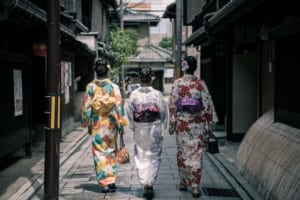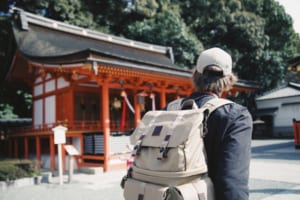10 Popular Japanese Girl Names
First name trends for girls in Japan

just like in other languages and countries, there are trends when it comes to Japanese first names. Also, just like in other countries, these trends change throughout time.
In this article, I will introduce to you 10 common Japanese first names for girls. These first names have been popular during certain times in Japan.
If you have Japanese friends, you might know someone with one of the names on this list.
▶︎Here are 10 common Japanese boy names!
How first names are decided in Japan
Before going to the list, let me explain to you how first names are usually decided in Japan. There are several factors that people tend to think about when making this important decision for their children.
- Meaning of the name: The name represents the parents’ wishes for the future of the child. It can be based on nature such as Sakura (like the flower) or Nagi (as in calm ocean waves). It could also be based on someone who’s important to the parents. A name can have different meanings depending on the Kanji (漢字) that is used. For example, the name “Keiko” can be written as either “恵子” or “景子”. Some people decide to not use Kanji.
- How it sounds: Also important is how it sounds when you say the name out loud. Contrary to the first point, there can be a Kanji that can be read in different ways. for example, the name ”幸子” can be read as either “Yukiko” or “Sachiko”.
- Make sure it’s not too old not too new: In Japan, there is this concept of “Kirakira name” and “Shiwashiwa name”. In simple terms, Kirakira name refers to names that are not common, while Shiwashiwa name refers to names that are not used so much anymore.
- Stroke number: There is an old tradition saying the number of pen strokes that takes for writing a name can have both good or bad influences on your child. Not everyone takes this into consideration, but a good percentage of parents are said to make sure the stroke number is good.
From here, I will share with you 10 of the most popular Japanese girl names. The order of the names appearing on this list is from older to newer popular names.
1. Yumiko
The first name on our list is Yumiko. This is a name that was most popular between the 1950s and 1960s.
The most common Kanji used for this name is “由美子”. In this case, the meaning behind this name includes the hopes of the parents that this girl grows up to become free and beautiful. Other ways to write Yumiko include “裕美子”, “弓子”, “優美子”, and “ゆみ子”.
Similar names include Kumiko (久美子) and Yumiko (真由美).
2. Naomi
Naomi is a name that was most popular between the late 1960s and early 1970s.
The most common Kanji used for this name is “直美”. In this case, the meaning of this name is “pleasantness”, and it also includes the hopes of the parents for this girl to be straight and beautiful. Other ways to write Naomi are “奈緒美” and “尚美”.
Similar names are Naoko (直子) and Yumi (由美).
3. Yoko
The next name is Yoko. This is a name that was most popular in the 1960s, 1970s, and 1980s.
The most common Kanji used for this name is “陽子”. The kanji “陽” represents the sun. In other words, this name includes the hopes of the parents for this girl to be strong, and bright like the sun. Other ways to write it include “洋子” and “よう子”.
Similar names are Yuuko (優子) and Keiko (恵子).
4. Tomoko
Tomoko is the next name on our list. This is a name that was most popular between the 1960s and 1980s.
The most common Kanji used for this name is “智子”. In this case, the name includes the hopes and wishes of the parents for this person to be wise in life. Other ways to write it include “知子” and “朋子”.
Similar names to Tomoko include Hiroko (裕子) and Maiko (麻衣子).
5. Ai
Ai is a name that was most popular between the 1970s and 2000s.
The most common Kanji used for this name is 愛. This is a straightforward name since the kanji “愛” means “love”. In other words, the hopes of the parents for this girl to have a life full of love can be seen.
Similar names to Ai include: Aya (彩) and Mai (舞).
6. Misaki
Misaki is a name that was most popular in the 1990s, 2000s, and 2010s.
The most common Kanji used for this name is “美咲”. The kanji “美” means “beauty”, and the kanji “咲” can mean “to flourish” or “to smile”. So there is hope for this girl to be beautiful and that she flourishes in life.
A similar name to Misaki would be Nanami (七海).
7. Sakura
Another popular name is Sakura. This is a name that was most popular in the 2000s and 2010s.
The most common way to write this name is “さくら” which is Hiragana instead of Kanji. Sakura, as you may imagine, comes from the cherry trees. There is a hope behind this name that this person becomes beautiful and strong like the sakura tree. Other ways to write the name Sakura include: “咲良” and “桜”.
Similar names are Ayaka (彩花) and Asuka (明日香).
8. Hina
This is a name that was most popular in the 2000s, 2010s, and 2020s.
The most common Kanji used for this name is “陽菜”. The kanji “陽” represents the sun. In other words, this name includes the hopes of the parents for this girl to be strong, and bright like the sun. Another way to write Hina is simply in hiragana: “ひな”.
A similar name to Hina is Yua (結愛).
9. Aoi
Aoi is a name that has been most popular between the 1990s and now. It is still a very popular name for girls. Although, depending on the Kanji, it can also be a name for a boy.
The most common Kanji used for this name is “葵”. The kanji “葵” means to “waive at the sun” or to “reach for the sun”. Just like a sunflower, there is a hope behind this name that this girl become strong and to be looking at the brightside.
A similar name to Aoi is Yui (結衣).
10. Himari
And lastly, Himari is a name that was most popular in the 2010s and 2020s.
The most common Kanji used for this name is “陽葵”. You may have noticed the two kanji used in this name, “陽” represents the sun, and “葵” means to “waive at the sun” or to “reach for the sun”. It is like a combination of the names Yoko and Aoi when it comes to meaning.
A similar name to Himari would be Yuzuki (結月).
I hope you enjoyed this article. Names are an important part of a culture, and it is no exception in Japan. If you liked this article and want to know more about Japanese culture, be sure to check out the following articles as well!
▽Related Articles▽
▼Editor’s Picks▼
Written by
Born and raised in Costa Rica, I started living in Tokyo from college. I love traveling within Japan & around the world. Since I wasn’t born in Japan, I know the cultural impact that you can get when visiting Japan for the first time and what you might be worried about before your trip. And I’ve lived long enough to somewhat understand the nuances of the Japanese culture that make this country such an attractive place to visit. Hopefully I can provide to you both the information you’re looking for and the information you didn’t know you needed to know.





